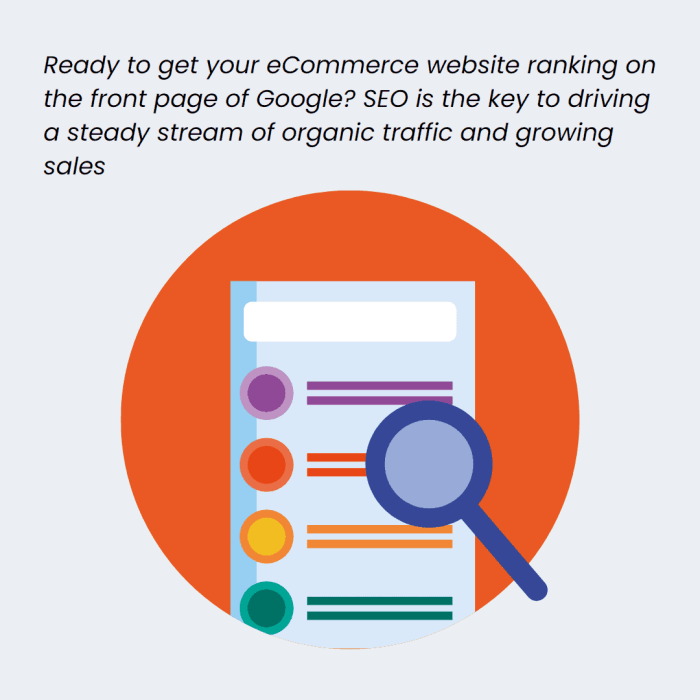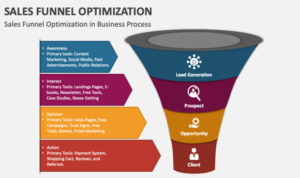SEO for E-commerce Websites – Kicking off with for E-commerce Websites, this opening paragraph is designed to captivate and engage the readers, setting the tone american high school hip style that unfolds with each word.
When it comes to running a successful online store, having a strong strategy is key. From driving organic traffic to improving product visibility, plays a crucial role in the success of e-commerce websites. Let’s dive into the world of for E-commerce Websites and explore the strategies that can take your online store to the next level.
Importance of for E-commerce Websites: SEO For E-commerce Websites

In today’s digital age, having a strong strategy is essential for the success of e-commerce websites. plays a crucial role in driving organic traffic to online stores, increasing visibility, and ultimately boosting sales and conversion rates. Let’s dive deeper into why is vital for the growth of e-commerce businesses.
Driving Organic Traffic
is the key to attracting organic traffic to e-commerce websites. By optimizing website content, product descriptions, and meta tags with relevant s, online stores can rank higher on search engine results pages (SERPs). This increased visibility helps potential customers discover products and services offered by e-commerce sites.
Impact on Visibility and Ranking
Effective practices can significantly impact the visibility and ranking of products on e-commerce platforms. By optimizing product pages with targeted s, images, and descriptions, online stores can improve their chances of appearing in search results when users are looking for specific products. This, in turn, can lead to higher click-through rates and conversions.
Increasing Sales and Conversion Rates
plays a crucial role in increasing sales and conversion rates for online stores. By optimizing the user experience, improving site speed, and implementing mobile-friendly design, e-commerce websites can provide a seamless shopping experience for customers. This, combined with effective strategies, can lead to higher conversion rates and ultimately boost sales.
Building Brand Credibility and Trust
not only helps e-commerce websites attract new customers but also plays a significant role in building brand credibility and trust. By consistently delivering high-quality content, optimizing for relevant s, and earning backlinks from reputable websites, online stores can establish themselves as authorities in their respective industries. This, in turn, helps build trust with potential customers and encourages repeat purchases.
On-Page Strategies for E-commerce Websites
When it comes to optimizing e-commerce websites for search engines, on-page plays a crucial role in improving visibility and driving organic traffic. Let’s delve into some key strategies specifically tailored for e-commerce sites.
Product Descriptions, URLs, and Meta Tags
- Product Descriptions: Crafting unique, detailed, and -rich product descriptions is essential for on-page . This helps search engines understand the content of your pages and improves the likelihood of ranking for relevant search queries.
- URLs: Optimize product URLs by including relevant s and keeping them concise and descriptive. Avoid using generic or randomly generated URLs, as they can negatively impact .
- Meta Tags: Write compelling meta titles and descriptions for each product page, incorporating target s naturally. This helps search engines and users understand the relevance of your products.
Optimizing Product Images
- Image Alt Text: Utilize descriptive alt text for product images to provide context to search engines. This improves accessibility and can also help in ranking for image search results.
- Image File Names: Rename image files with relevant s before uploading them to your e-commerce site. This can further enhance the visibility of your products in search engine results.
Internal Linking for , SEO for E-commerce Websites
- Strategic internal linking can help search engines discover and index your product pages more efficiently. Linking relevant products, categories, and related content within your site can improve the overall performance.
- Ensure a logical hierarchy and structure for internal links to provide a seamless user experience and facilitate search engine crawlers in navigating your e-commerce website.
Creating -Friendly Product Categories and Navigation
- Organize products into clear and relevant categories to enhance user experience and . Use descriptive category names and optimize category pages with unique content and s.
- Implement breadcrumb navigation to help users and search engines understand the site structure and easily navigate between different product categories and pages.
Off-Page Techniques for E-commerce Websites
When it comes to optimizing your e-commerce website for search engines, off-page techniques play a crucial role in boosting your online visibility and driving traffic to your site.
The Significance of Backlinks for E-commerce
Backlinks are like upvotes from other websites, signaling to search engines that your site is trustworthy and authoritative. For e-commerce , quality backlinks from reputable sites can significantly improve your website’s ranking in search engine results pages.
The Role of Social Media in Off-Page Strategies for Online Stores
Social media platforms are not only great for engaging with your audience but also for building brand awareness and generating backlinks. By sharing your products on social media channels and encouraging user interaction, you can create valuable backlinks and improve your off-page efforts.
How Online Reviews and Ratings Impact Performance of E-commerce Websites
Positive online reviews and high ratings can have a direct impact on your e-commerce website’s performance. Search engines consider user-generated content like reviews and ratings as a trust signal, leading to improved search rankings and increased organic traffic.
Insights on Influencer Partnerships and Their Influence on Off-Page Efforts
Collaborating with influencers in your industry can help amplify your brand’s reach and attract more backlinks to your e-commerce website. When influencers promote your products or services, they can drive traffic to your site and improve your overall off-page performance.
Technical Best Practices for E-commerce Websites

When it comes to optimizing an e-commerce website for search engines, there are several technical aspects that need to be taken into consideration in order to improve visibility and rankings.
Website Speed and Mobile Responsiveness
Having a fast-loading website is crucial for both user experience and . Search engines like Google prioritize websites that load quickly, especially on mobile devices. Mobile responsiveness is also key, as more and more users are accessing e-commerce sites on their smartphones and tablets. Ensuring that your site is optimized for mobile devices can positively impact your search engine rankings.
Structured Data Markup and Rich Snippets
Implementing structured data markup for product listings can help search engines better understand the content of your e-commerce site. This can lead to the display of rich snippets in search results, which can attract more clicks and improve visibility. By providing detailed information about your products through structured data, you can enhance the search experience for users and increase the chances of appearing in featured snippets.
XML Sitemaps
XML sitemaps play a crucial role in helping search engines crawl and index the pages of your e-commerce website effectively. By including all relevant URLs in your XML sitemap, you make it easier for search engines to discover and prioritize your content. This can lead to faster indexing and improved visibility in search results.
Optimizing Site Architecture and Navigation
A well-organized site architecture and intuitive navigation are essential for both users and search engines. By optimizing your site structure, you can make it easier for users to find what they’re looking for and for search engines to crawl and index your pages. Properly structured URLs, internal linking, and clear navigation menus can all contribute to improved performance for your e-commerce website.


